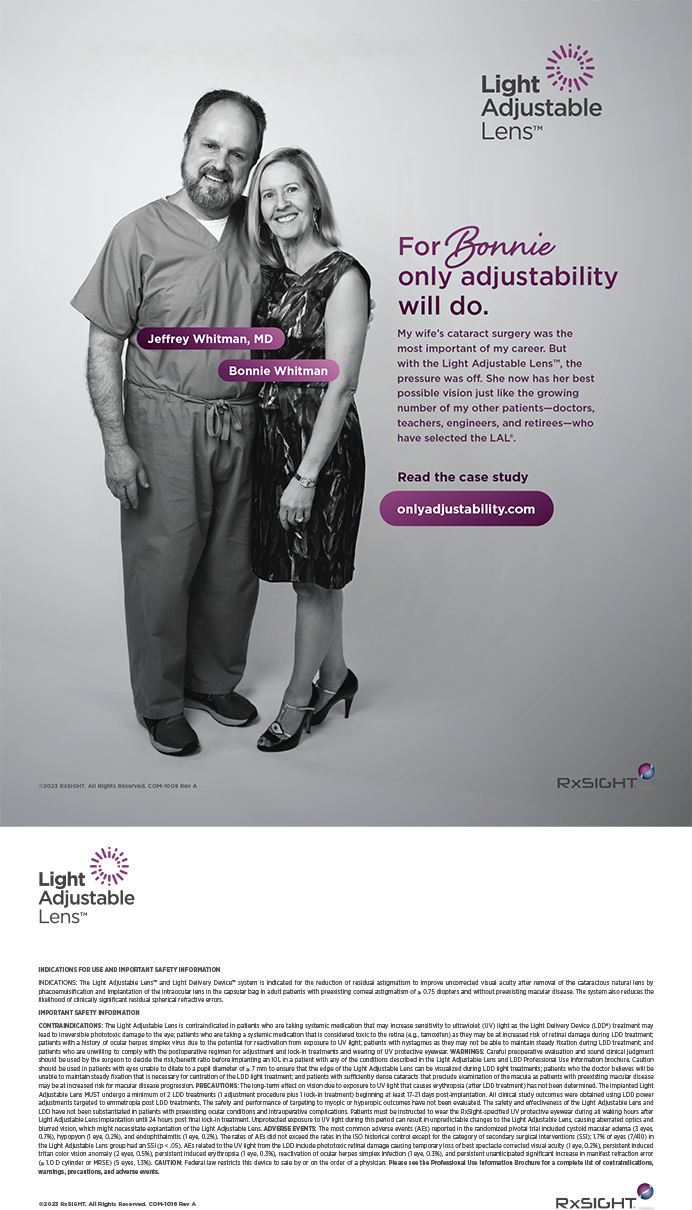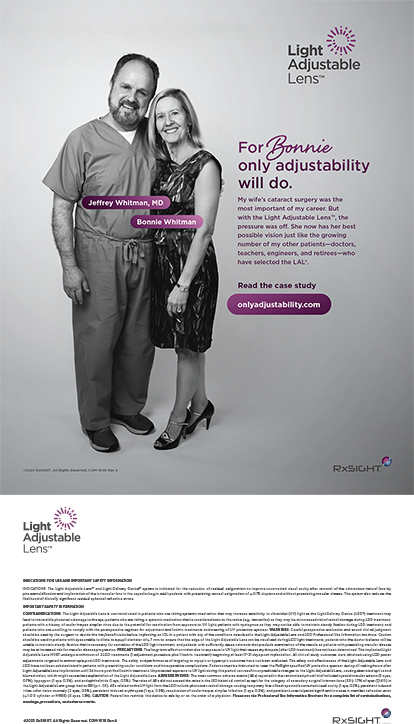Tell us about yourself and your current research interests.
I am a private practitioner who considers herself a patient advocate. My goal is to conduct sufficient research to decide what is safe and appropriate to incorporate on my patients' behalf, so therefore I am usually just behind the leading edge. I am currently involved in a phase III study for the Phakic Refractive Lens by Medennium Inc. (Irvine, CA) that CIBA Vision (Duluth, GA) will be distributing. I am also about to become involved in a study with WhiteStar.
How did you choose ophthalmology as a profession?
When I was 11 years old, my grandfather had giant tears in his retina. The first eye affected lost its vision; when his second eye became involved, my mother, Dr. Joyce Brothers, learned of something new that Charles Schepens, MD, in Boston had developed, the scleral buckling operation. Dr. Schepens saved my grandfather's sight in his second eye, and the impact he had on our lives was so impressive to me that I thought I would like to do the same for others.
How have you learned to manage rising patient expectations?
I really believe that communication is essential between the doctor and the patient. We have to make it clear to patients what we are able to accomplish in a given situation. For example, I will spend quite a bit of time with patients who have macular degeneration and a guarded prognosis so they can make a decision as to whether the risk is adequate or not. Patient understanding is the key, although, it does create pressure. If I want to be world-class, then I have to routinely employ the best technology and do everything I can to achieve the patients' goals as often as possible. This is why I consider myself a refractive phaco surgeon.
What would you change about ophthalmology if you could?
I suppose I would change the competitiveness between optometrists, ophthalmologists, and subspecialists so that they could each do what they are trained to do best in the patient's best interest. I would like to change the whole idea of production-based work. In our group, we have a novel model of sharing incomes that is minimally based upon production. For instance, if I see a retinal tear, I am encouraged to let our retinal specialist handle it; although I am capable of treating that problem, I do not do it as often or as well as the retinal specialist. In turn, I then have the time to perform the work that I do best. This model recognizes that every physician is essential to the goal of taking the best possible care of patients.
What was your most memorable surgical experience?
I saw an entirely deaf patient who had only one eye, on whom I performed cataract surgery without difficulty using topical anesthesia and prearranged communication signals. It was a very dramatic moment when we finished and she was able to read the clock on the wall and see signing. She would have transiently been in a totally isolated world had we needed to use a regional anesthesia for her, and at the time, physicians were saying that deafness was a contraindication for topical anesthesia.


